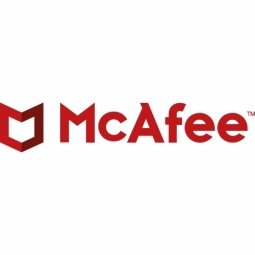Customer Company Size
Large Corporate
Region
- America
Country
- United States
Product
- Skyhigh for Shadow IT
Tech Stack
- Cloud Access Security Broker (CASB)
Implementation Scale
- Enterprise-wide Deployment
Impact Metrics
- Cost Savings
- Productivity Improvements
- Digital Expertise
Technology Category
- Cybersecurity & Privacy - Cloud Security
Applicable Industries
- Oil & Gas
Applicable Functions
- Business Operation
Use Cases
- Cybersecurity
Services
- System Integration
- Cloud Planning, Design & Implementation Services
About The Customer
Williams is a Fortune 500 large-scale energy infrastructure company that gathers, processes and delivers natural gas for and to thousands of customers nationwide. Based in Tulsa, Oklahoma, Williams was recently recognized by Fortune Magazine as the #1 Most Admired U.S. Energy Company for 2015. With more than 5,800 employees across five major offices and more than 150 field offices across the United States and Canada, Williams has taken an open approach to cloud use and adoption, allowing their employees to utilize the cloud services needed to get their jobs done as efficiently as possible.
The Challenge
Williams, a large-scale energy infrastructure company, had been allowing its employees to use cloud services without a security stamp of approval. This led to a lack of visibility into the number of cloud services in use across the enterprise and the associated risks. The company was spending too many man hours assessing the security of cloud services when employees requested a new service. They were unable to enforce policies and ensure compliance without impacting the user experience. The company needed a solution to gain visibility into the cloud services being used, understand the risks, and enforce policies without affecting productivity.
The Solution
Williams decided to leverage a cloud access security broker (CASB), Skyhigh, to fully understand the risk to their organization. Upon deploying Skyhigh into their environment, they discovered that they were using more than 2,000 cloud services. Skyhigh allowed them to begin establishing and managing the risk that came along with them. The Williams team is now able to see and capture the data they need to be able to group the riskiest cloud services and block access to them, while accelerating adoption of permitted services. In addition to having the visibility needed to manage risk across the enterprise, the Williams team can also detect anomalous behavior that may be indicative of insider threats, compromised accounts, malicious or negligent behavior through Skyhigh’s machine-learning analytics, which is based on user-behavior.
Operational Impact
Quantitative Benefit

Case Study missing?
Start adding your own!
Register with your work email and create a new case study profile for your business.
Related Case Studies.

Case Study
Taking Oil and Gas Exploration to the Next Level
DownUnder GeoSolutions (DUG) wanted to increase computing performance by 5 to 10 times to improve seismic processing. The solution must build on current architecture software investments without sacrificing existing software and scale computing without scaling IT infrastructure costs.

Case Study
Remote Wellhead Monitoring
Each wellhead was equipped with various sensors and meters that needed to be monitored and controlled from a central HMI, often miles away from the assets in the field. Redundant solar and wind generators were installed at each wellhead to support the electrical needs of the pumpstations, temperature meters, cameras, and cellular modules. In addition to asset management and remote control capabilities, data logging for remote surveillance and alarm notifications was a key demand from the customer. Terra Ferma’s solution needed to be power efficient, reliable, and capable of supporting high-bandwidth data-feeds. They needed a multi-link cellular connection to a central server that sustained reliable and redundant monitoring and control of flow meters, temperature sensors, power supply, and event-logging; including video and image files. This open-standard network needed to interface with the existing SCADA and proprietary network management software.

Case Study
Refinery Saves Over $700,000 with Smart Wireless
One of the largest petroleum refineries in the world is equipped to refine various types of crude oil and manufacture various grades of fuel from motor gasoline to Aviation Turbine Fuel. Due to wear and tear, eight hydrogen valves in each refinery were leaking, and each cost $1800 per ton of hydrogen vented. The plant also had leakage on nearly 30 flare control hydrocarbon valves. The refinery wanted a continuous, online monitoring system that could catch leaks early, minimize hydrogen and hydrocarbon production losses, and improve safety for maintenance.






